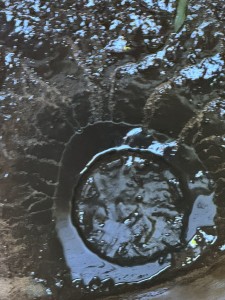Blocked drains are a common household issue that can quickly disrupt your daily activities and lead to bigger issues if left unresolved. From unpleasant odours to slow-draining sinks, these problems demand prompt attention and can escalate if not addressed promptly. We will explore the common causes of blocked drains, how to identify them, practical DIY solutions, when to call a professional, and tips for preventing future blockages.
Common Causes of Blocked Drains
Understanding what causes blocked drains can help you take steps to avoid them. Here are some common culprits:
- Hair and Soap Scum: In bathrooms, hair and soap residue often combine to form stubborn clogs.
- Grease and Food Scraps: In kitchens, cooking grease, oil, and food particles can solidify and block pipes.
- Tree Roots: Outdoors, tree roots can invade underground pipes in search of water, leading to severe blockages.
- Foreign Objects: Items like sanitary products, wet wipes, and small toys can accidentally find their way into drains, causing clogs.
Signs of a Blocked Drain
Early detection of a blocked drain can save you time and money. Look out for these warning signs:
- Slow Draining: Water takes longer than usual to drain from sinks, showers, or bathtubs.
- Gurgling Noises: Unusual sounds coming from your pipes indicate trapped air caused by blockages.
- Unpleasant Odors: Foul smells near drains often result from decomposing debris stuck in the pipes.
- Water Backups: Water overflowing from sinks, toilets, or showers signals a more severe blockage.
DIY Solutions for Minor Blockages
If you suspect a minor blockage, try these safe and effective DIY methods:
- Plunge It: Use a plunger to create suction and dislodge the blockage. Ensure there is enough water in the sink or toilet to cover the plunger’s cup.
- Natural Cleaners: Pour a mixture of hot water, baking soda, and vinegar down the drain. Let it sit for 30 minutes, then flush with more hot water.
- Drain Snake: Use a drain snake or an unbent wire hanger to manually remove debris from the pipe.
- Avoid Chemicals: While tempting, chemical drain cleaners can damage pipes and harm the environment.
When to Call a Professional Plumber
Some drain problems require professional expertise. Contact a plumber if:
- Your DIY efforts don’t work.
- Multiple drains are clogged simultaneously.
- You suspect a sewer line blockage.
- Pipes are damaged, or blockages keep recurring.
A professional can use advanced tools like hydro jetting or video inspections to diagnose and resolve severe issues.
Preventing Future Drain Blockages
Prevention is key to avoiding the inconvenience of blocked drains. Follow these tips:
- Use Drain Strainers: Install strainers in sinks and showers to catch hair and debris.
- Dispose of Grease Properly: Allow cooking grease to cool and dispose of it in the trash instead of pouring it down the sink.
- Regular Cleaning: Use natural cleaning solutions monthly to maintain clear drains.
- Be Mindful of What You Flush: Only flush toilet paper and human waste—avoid flushing wet wipes or sanitary products.
- Schedule Inspections: Have a professional inspect your drains periodically, especially if you live in an older home.
Conclusion
Keeping your drains clear is essential for a functional and hygienic home. By understanding the causes of blockages, recognising early warning signs, and taking preventive measures, you can avoid costly repairs and maintain a healthy plumbing system. For severe issues, don’t hesitate to call a professional at King Solar Man on 0416 075 682.
